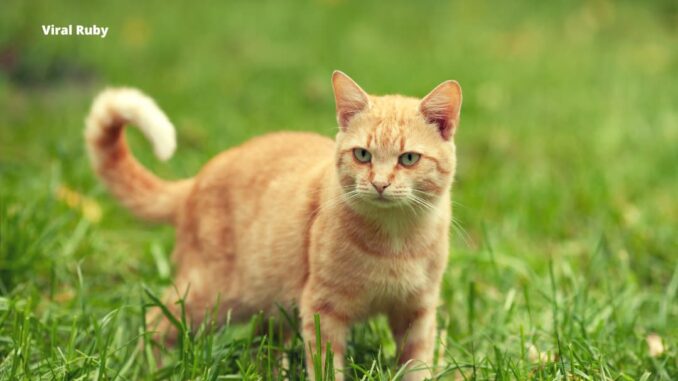
What Smells Do Cats Hate the Most?
Cats aren’t big fans of spicy scents and foods, but they love the sweeter varieties. Some common smells cats hate include cinnamon, lemongrass, and lavender. Lavender, in particular, is toxic for cats, and if ingested, can damage their liver and even kill them. Other smells cats don’t like include geranium, pennyroyal, and rue.
What smells do cats hate?
Cats have an extremely keen sense of smell. It’s a good idea to avoid any scent that can harm them. Some of the most common smells your cat dislikes are spicy food and highly-seasoned meat. Similarly, cats dislike the smell of toxic plants. Eucalyptus is particularly bad for cats. However, cats love other scents such as the smell of flowers. In order to avoid putting your cat in danger, make sure you avoid these common odors.
For More: Can Babies Have Seizures in the Womb?
A cat’s sense of smell is quite advanced, which is one of the reasons why they prefer to live in a clean environment. This heightened sense of smell also plays an important role in their defense mechanisms against external threats. Their olfactory system has more than 14 times the sensitivity of a human’s.
Some common odors that cats do not like include citrus fruits. This is probably due to the high potassium content of citrus fruits. Bananas are also likely to frighten cats because they smell of potassium.
What smells do cats hate the most?
One common problem is that cats hate the smell of bananas. While a cat may be drawn to the tasty fruit, its smell may put it off from jumping on your furniture. A good way to help your cat avoid bananas is to peel them and place them in areas that you don’t want them to access. Avoid using peels that are slippery, though.
Read Also: When Do Squirrels Have Their Babies?
Cats have an extremely powerful sense of smell. In fact, they have nine to 16 times more odor-sensitive cells than humans. Their noses contain anywhere from 45 to 200 million odor-sensitive cells, whereas human nostrils only contain about 5 million. These odor-sensitive cells help your cat detect a variety of different things.
Essential oils and citrus scents are among the most unappealing smells for cats. They can be particularly toxic. Avoid citrus-scented items and scented soaps.
What smells do cats hate in garden?
Cats have a very strong sense of smell, so plants with strong smells can repel them. Some plants you can use to deter cats include citronella, garlic, and cinnamon. The smell of ripe bananas may also scare your feline companions. Avoid placing these plants near your house or around your garden.
Are You Looking: Do Worms Have Babies Or Lay Eggs?
One common smell that cats dislike is the smell of dirty litter boxes. This scent can compel your cat to use another part of the house or abandon the litter box altogether. Other plants that are considered offensive by cats include rosemary, eucalyptus, and lavender. Rue is also a natural cat repellent.
Citrus fruits are another natural cat repellent. Cats don’t like the strong scent of citrus fruits, so they will not visit your flower beds or garden. If you’re not sure which scents work for your garden, you can squeeze the fruit and spritz it around the garden.
What smells do cats hate to pee on?
Cats dislike certain smells, and it’s important to know what those smells are. Cats don’t like the smell of dirty litter boxes, and they will let you know by urinating or defecating elsewhere. Cats also dislike strong smells, and their noses are incredibly sensitive. They have over 200 million olfactory receptors, much more than humans have.
See Also: How Many Goats Am I Worth?
Some scents that cats dislike include citrus and fresh herbs. Peppermint and lemongrass are particularly unpleasant. Fortunately, these scents aren’t toxic, and they can’t hurt your cat. A few other scents cats don’t like include rosemary, thyme, and banana.
Another effective method is to use cat repellent. Some cats are deterred by the smell of citrus, mint, prickly plants, and vinegar. Roses, holly, and hawthorne are also effective deterrents. Using a citrus spray on your cat’s favorite spot will make it less likely to pee in it again.
What smells do cats hate but dogs like?
Despite the fact that dogs and cats have very different preferences, both pets tend to prefer familiar smells. Dogs are drawn to scents associated with their pack and human family. This is why they are often attracted to smelly items, such as food. However, you have to be careful when using these smells because they can harm your dog’s health.
Are You Searching: How Long Does Juvederm Last in Face?
Some smells that cats find offensive are citrus fruits, eucalyptus, and bananas. Bananas contain the chemical ethyl acetate, which cats find unpleasant. While cats may ignore bananas, they are likely to be deterred by the scent of citrus fruits.
The list of scents that cats dislike may surprise you. Many cats are sensitive to certain smells and are able to detect them when they need your attention. These scents include those found in cleaning products.
What smells do cats hate to poop?
Cats are sensitive to smell, and certain smells can make them sick. Fresh herbs and citrus are some of the worst for a cat’s olfactory system, but lavender, mint, and rosemary are also obnoxious to cats. You should avoid using these scents around your cat, however.
See Facts: How Do Worms Have Babies?
Strong scents can be a deterrent to your cat’s urge to poop. Citrus fruits, vinegar, and mint all have a strong smell that cats are repulsed to. However, you can also try spraying these scents on the area where you don’t want your cat to pee.
Citrus scents are the worst for cats to poop. Cat urine contains strong-smelling proteins that help cats mark their territory. Unfortunately, this can ruin carpeting, furniture, and other possessions. By spritzing certain scents in the area where your cat poop, you can deter them from peeing on your furniture or carpeting.
What smell do cats hate to scratch?
There are some scents cats hate and these can be used to deter them from scratching. Rosemary, lemongrass, and eucalyptus are all great deterrents for your cat. However, they should not be used as a sole deterrent to scratching. Cats scratch for several reasons, such as sharpening their claws and leaving scent behind. A good alternative is rosemary vinegar, which you can make by soaking rosemary in vinegar and diluting it with distilled water.
Reveal More: How To Balance Estrogen Dominance Naturally For Female
Cats have a heightened sense of smell, which is one of the reasons they don’t like plants that emit strong scents. Some plants contain volatile organic compounds, which cats find disgusting and don’t want to come into contact with. Also, cats don’t like the smell of citrus fruits.
If you’re not a cat owner, but still want to discourage your cat from scratching, you can try spraying the area where the scratching is occurring with a cat deterrent scent. This is especially useful if you’re trying to prevent your cat from accessing a specific area of your house. Cats also won’t want to ingest scents from plants that contain essential oils.
What smells will cats stay away from?
Cats dislike spicy smells, such as cinnamon. Some cats may even be allergic to cinnamon. However, even if the scent doesn’t cause a reaction, it can be harmful in large amounts. Some varieties of cinnamon are toxic to cats, including cayenne pepper. Some plants also repel cats, such as rue.
Must Read: Taking Cara Babies Sitback Newborn
Cats don’t like the smell of certain fruits or vegetables. They associate this smell with something toxic, and so will avoid these areas. Luckily, there are some ways to keep your property odor-free. One simple way is to plant orange peels around your garden. This will prevent your feline from roaming the property.
Adding spices to your home is another effective way to keep cats out. Ground cinnamon and other spices have a strong, pungent smell that cats cannot tolerate. Moreover, you can put other common scents around your home, such as geranium and eucalyptus. However, be careful with eucalyptus, as it can be toxic to cats if ingested.

Leave a Reply